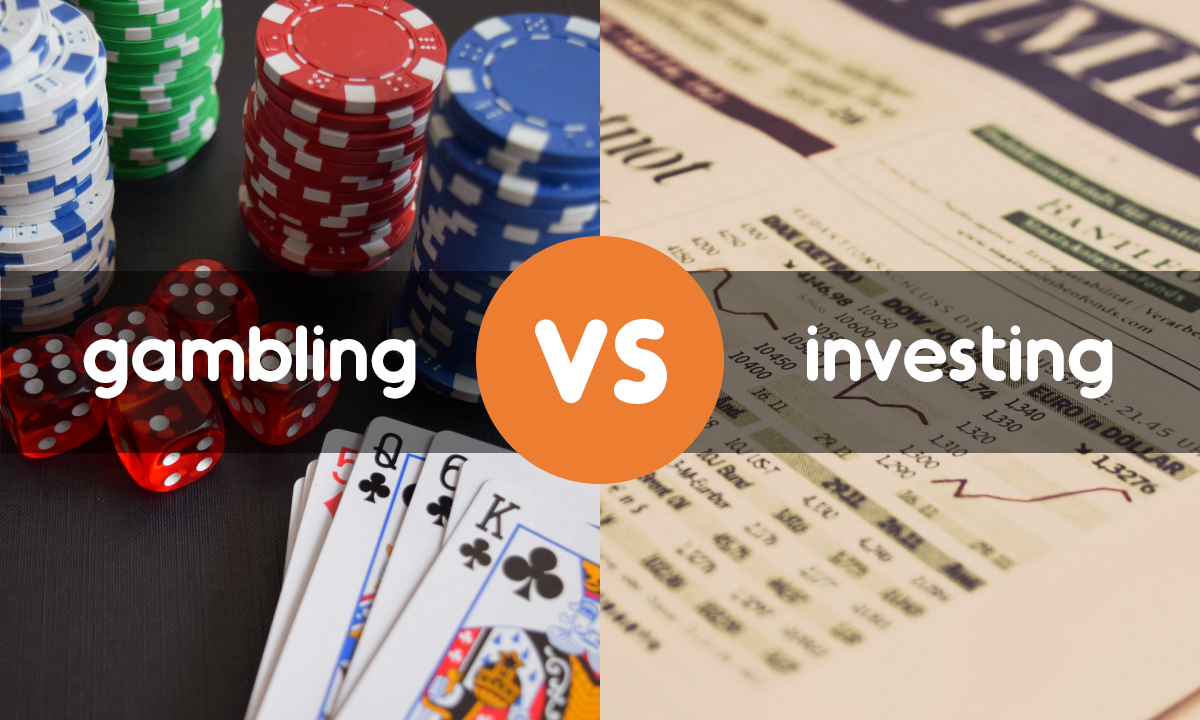Psst! Are you investing, gambling or
speculating?
April 5, 2019
Many people say they invest. But they are really gambling or speculating! What about you? The difference in investing, gambling and speculating is in the underlying personal behavior which depends on attitudes towards the risks involved.

A gambler accepts the risk of instant capital loss but is unable to manage that risk. Once the gamble is taken, there is no way out.
An investor assesses the risk of capital loss continuously and can reduce or increase risk according to the investor’s own risk tolerance. Risk tolerance is an important concept to understand.
A speculator’s behaviour is a cross between a gambler and an investor. A speculator accepts the gambler’s risk of full capital loss. However, the loss is not immediate nor necessarily “all or nothing”. Like an investor, a speculator can reduce or increase risk, but may not bother to manage the risk proactively.
Investing requires continuous tracking of risk that matches your risk tolerance.
How is this humanly possible?
Therefore, it is a simple fact that as emotional human beings, we behave more as a gambler or speculator
simply because it is not possible for us to continuously manage risk with no emotions. So, even though we tell
people we invest, a scientific check will easily confirm that we are mostly gambling or speculating!
So, how can we invest the right way?
The Practical Ugly Truth about the Investment Market
The hard truth is this. Many think they are investing. But they are really gambling or speculating.
To invest, one must continuously track the risks. You must be able to track huge amounts of data 24x7. This is humanly impossible.
When you “invest” in unit trusts or mutual funds, your money is pooled together with other “investors” and managed by a human money manager. But can the money manager track risks continuously? Well, they can’t. They’re human too, right?
That is why human money managers attract you with investment returns. As for risks, they can only tell you after the fact.
Outsourcing Our Speculation
Why are we using human money managers to invest for us when they are like us – just human?
Well, thanks to huge advertising budgets, we “trust” the human money manager to serve our interests foremost. We believe that they have more knowledge than us about the investment markets than us. But do they?
The sad reality is that the money manager earns a nice fee off your money to pay themselves well and to pay commissions to brokers who sell the unit trusts/mutual funds to you or support the money manager with investment ideas. I know. I used to manage other people’s money!
Is the fee worth the results? Evidence clearly shows that unit trusts/mutual funds do not perform consistently well for the risks taken and the high management fees charged. If the money manager is so good, why does the money manager still need to earn fees from managing your money – when the money manager can manage his own money?
The Loud Silence About Exchange Traded Funds (“ETFs”)
To whet your appetite, there are low-cost Exchange Traded Funds (“ETFs”) which now make unit trusts or mutual funds look like dinosaurs (who still make a sumptuous expensive meal of ignorant investors). The answer is simply in how these products are packaged and sold to you at good fees for the sellers. I am not so sure it is the best for you compared to the ETFs that are already available.
Do you know that ETFs accounts for about a quarter of the daily volume in US stock markets, and sometimes up to 40 percent? The ETF boom is part of a wider trend away from actively managed mutual funds. Yet why are there hardly any sales of ETFs compared to unit trusts or other financial products? Few of us are told about ETFs. You know why.
ETFs are useful low ways for investors to get exposure to new growth sectors or protect against emerging risks. As ETFs grow, the man-in-the-street can adopt sophisticated investment strategies similar like professional investment managers or even sovereign wealth funds.
SquirrelSave - Smart Investing for Anyone, Anywhere, Anytime.
At SquirrelSave, we want to bring low-cost, AI-driven risk managed global ETF investments to anyone, anywhere, anytime. You do not need any knowledge except about your own risk tolerance and how much you want to invest. SquirrelSave offers you an innovative gamified risk profiler to help us identify your risk-reward behaviour to which we apply data analytics to assess your risk tolerance. Check out my other writing about the problem with risk profiling practices across the world.
Our AI-driven Digital Asset Allocation System (“DAAS”) generates an optimised global investment portfolio recommendation instantly – by using real-time market data – and personalized to your needs. All you have to do is to decide how much to invest, transfer the money and we do everything for you. You do not need a lot of money to start.
We are not a trading engine. We adopt the Nobel Prize winning Modern Portfolio Theory (“MPT”) financial mathematics layered with our proprietary machine learning AI which has been trained on up to 13 years of data to date. We assess long term shifts in risks and adjust your portfolio to target good risk-adjusted returns that suits your chosen risk tolerance. Find out more by registering at www.squirrelsave.com.sg.
More Articles more

Is Risk Profiling Just Another Questionnaire?
April 11, 2019 | Victor Lye, CFA CFP®
Investing should be about targeting the risks first before chasing returns. I propose three fundamentals to consider. Read more

What You Should Know About Unit Trusts
April 18, 2019 | Victor Lye, CFA CFP®
Not everyone has the same gung-ho risk attitude. Yet there is a fear of losing out when you hear boasts from people who say how much money they made from investing. Read more

The Good Old Days, and The Fantastic Days Ahead...
May 7, 2019 | Victor Lye, CFA CFP®
Many years ago, when I was a
stockbroker, I researched companies
listed on various stock exchanges.
Based on my research, ...
Read more